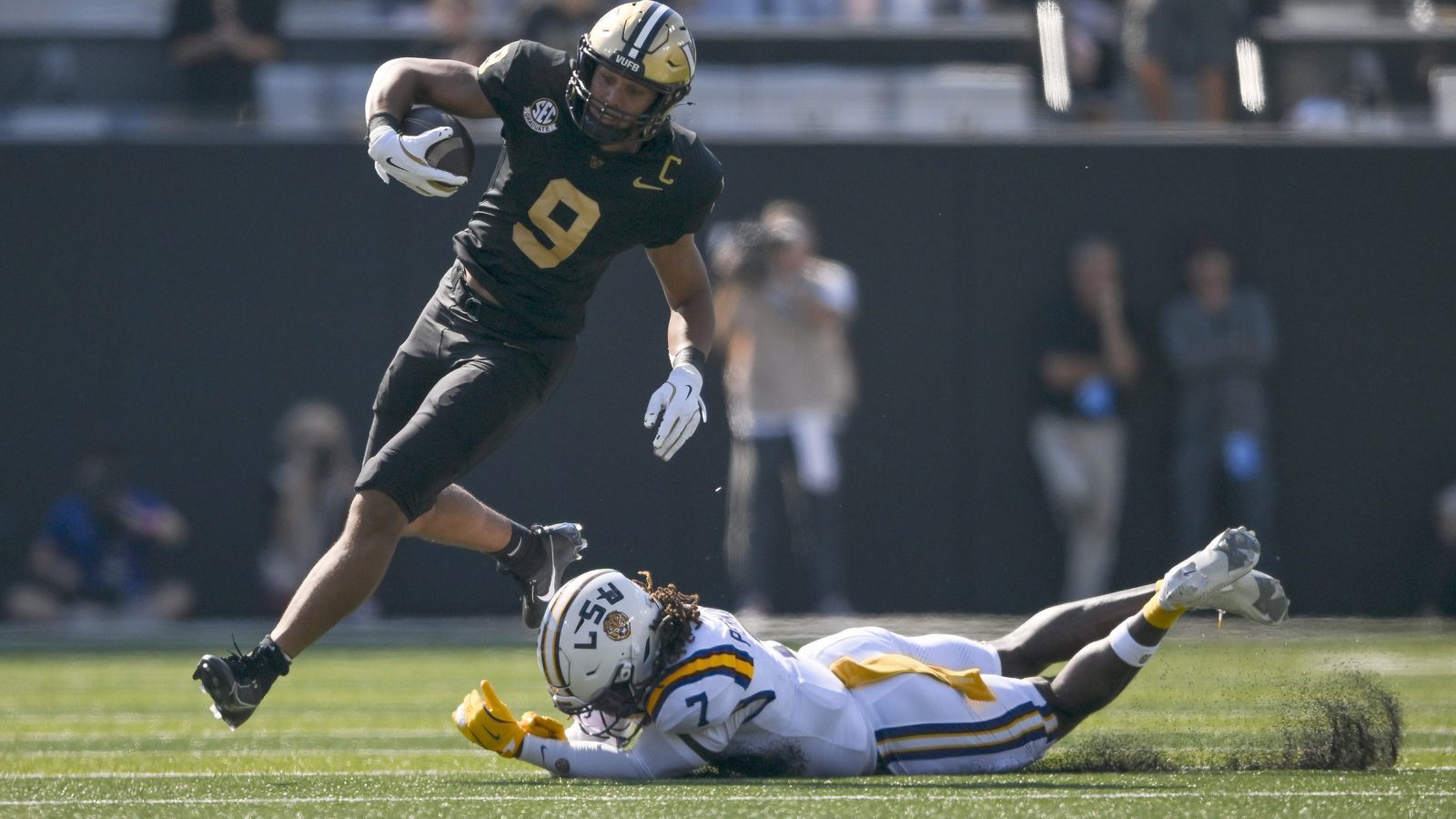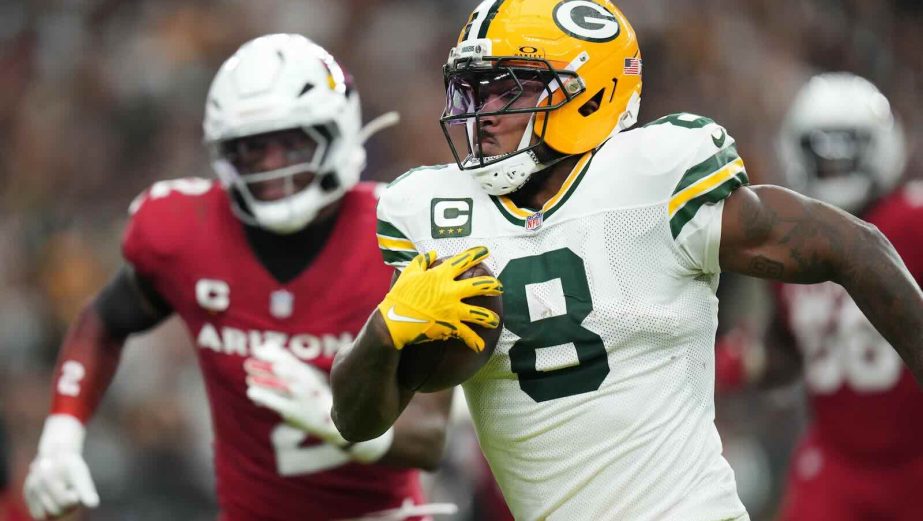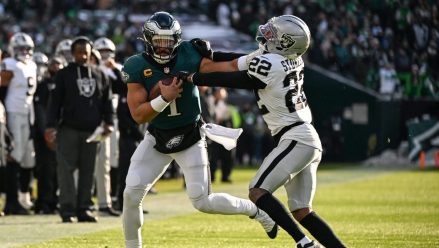“Extreme demand” caused Kalshi’s website and app to go offline Saturday afternoon, a spokesperson told InGame.
Kalshi was hit by an outage right as the early slate of college football games reached their conclusion and mid-afternoon (Eastern time zone) games kicked off, typically one of the busiest points of the day.
The issue seemed to begin shortly after 3 p.m. ET and continued until around 4:30 p.m. During this period, the site did not load for many users — or, if it did load, balances were shown as zero and trades were not possible.
Trading via Kalshi’s API and Robinhood appeared to stay unaffected.
Some users on Discord reported technical issues into Saturday evening and on Sunday, though these apparently were more limited.

“Yesterday, Kalshi’s direct platform experienced data loading lag due to extreme demand,” the Kalshi spokesperson said in a statement Sunday. “The back-end exchange remained online, broker platforms were unaffected, and user funds were not at risk.
“These front-end issues have since been resolved.”
API, Robinhood trading continued
Unlike a previous outage in August, which affected the entire Kalshi operation rather than just the website and app, trading continued through Saturday’s outage period.
Trade offers placed by app and website users remained active, but the users who placed them were unable to cancel any, allowing API users to “pick off” offers that may have become outdated. For example, if a website trader offered a bet for Team A to win a game, they may wish to cancel the trade if Team B scored a touchdown. If they were unable to do so, an API user may be able to accept the bet that is now at particularly favorable odds.
The Kalshi API is mostly used by large-scale traders, including institutional market makers. The API is a live feed of market information such as prices, volumes, and event details. While the information is available to all users, larger traders have the ability to place bets using the API, which allows them to build their own automated trading software.
On Discord and Twitter, users complained about the decision not to halt trading.

Kalshi sent an email to users who exclusively used the website or app to trade and who had active trade offers that were accepted, letting them know that they would be refunded for losses resulting from the outage. This move generally was received positively.
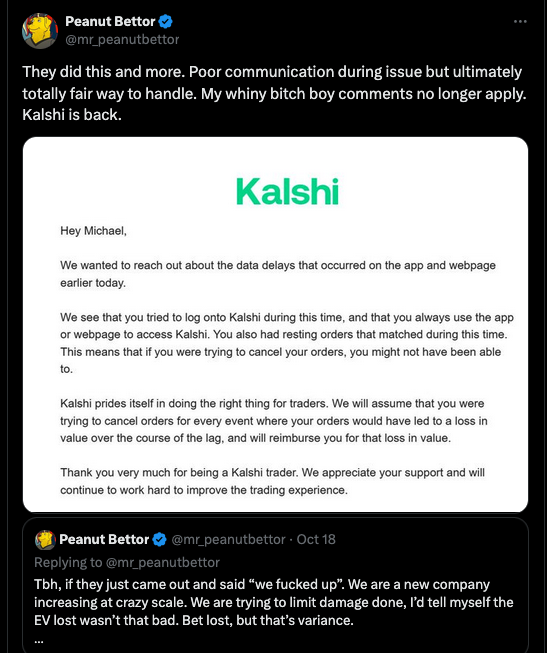
Data shows slowdown but not stoppage
Kalshi’s trade data shows a significant slowdown in activity during the outage period, but it was far from a stoppage.
Volume fell to around $8 million of contracts traded in the typically busy hour from 3:30 p.m. until 4:30 p.m. ET. During the same period on the previous Saturday, more than $20 million worth of contracts were traded.
Although there was a spike in trades right around the start of the outage, it appears that the financial impact of “picking off” was fairly small. The spike in question was inflated by three large trades on the Federal Reserve, 2028 presidential election, and Major League Baseball. Unlike college football games — which were ongoing during the outage — it is unlikely that these trades would have been subject to sudden changes in information that would have led to outdated trade offers being available on the platform in the way that may occur for a live sports event.
Kalshi’s rapid growth
The demand-induced error comes as Kalshi adjusts to its rapid growth since it launched sports event contracts earlier this year. Trading volume on Saturdays on Kalshi has grown around 30-fold since mid-March.
Though Kalshi has grown quickly, the errors came during a period when its growth appeared to be tapering off. Kalshi set a record for daily volume on Sunday Oct. 5, with $291 million, while its Saturday record was set on Oct. 4. Volume then declined for the weekend of Oct. 11-12 and, while it improved last weekend, it remained below the levels reached during the first weekend of the month.
During the early years of legal online sports betting in the U.S., major sportsbook sites and apps often struggled with the high traffic they faced on Super Bowl Sunday.
FanDuel, Fanatics go down Monday
On Monday, major sportsbooks FanDuel and Fanatics suffered outages of their own, apparently related to an issue with cloud computing provider Amazon Web Services (AWS), which hosts servers for many of the world’s most-used websites.
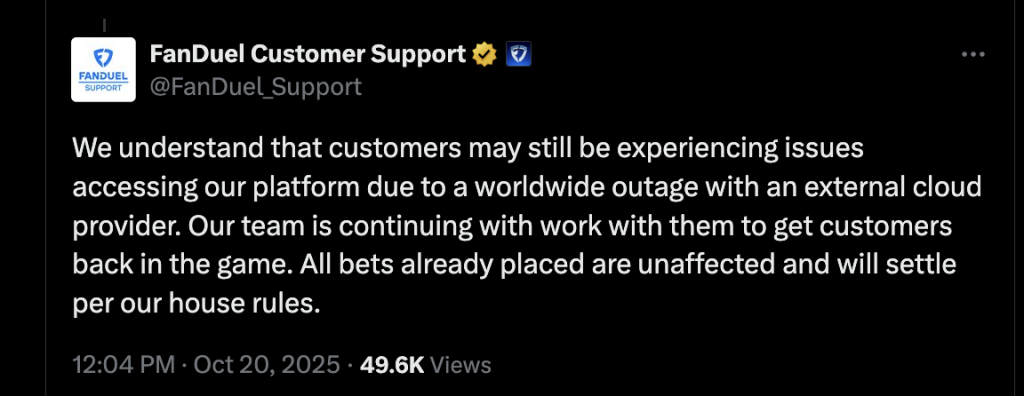
A number of other popular websites unrelated to sports betting were also affected by the outage. Kalshi, which also uses AWS, did not appear to be impacted.

